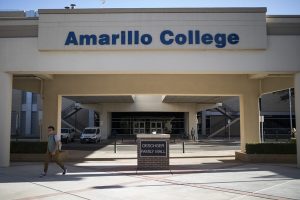Aspen Rising Presidents Fellowship
The Aspen Rising Presidents Fellowship aims to address the dramatic turnover in the community college presidency by recruiting and developing exceptional leaders—a cadre of diverse reformers who can push the field forward and advance student success. The Aspen Institute engages a select group of fellows each year in this intensive, applied executive leadership program.
The fellowship includes residential seminars, mentoring by veteran college presidents, and the development of a strategic leadership vision through a capstone project. The curriculum centers on broad themes drawn from the work of excellent community colleges: equitable student success strategies, leadership of cultural change, and partnership for collective action.
Across the year, fellows will:
The fellowship includes residential seminars, mentoring by veteran college presidents, and the development of a strategic leadership vision through a capstone project. The curriculum centers on broad themes drawn from the work of excellent community colleges: equitable student success strategies, leadership of cultural change, and partnership for collective action.
Across the year, fellows will:
- Work with national leaders who are shaping and implementing at scale best practices for community college success.
- Build a network of forward-thinking peers to support and challenge one another in the pursuit of broad change.
- Apply grounded and innovative strategies to meet student success challenges at their home colleges.
- Be recognized and promoted as highly promising candidates for future presidencies.
When do applications open for the next cohort?
The application for the Rising Presidents Fellowship will open in Fall 2024. Please check our website for updates.
When will the next cohort run?
The next cohort of the Rising Presidents Fellowship will include three in-person sessions in September 2025 and January and April 2026.
How can I learn more?
Join a Fellowship informational webinar to learn more about the fellowship and the application process. Webinars will occur throughout the Fall of 2024.
What does the Aspen Rising Presidents Fellowship include?
The Rising Presidents Fellowship provides a perspective and skillset that equips fellows to become innovative and highly effective leaders of community colleges that achieve exceptional results for students and communities.
The year-long fellowship includes:
The year-long fellowship includes:
- Seminars led by the Aspen Institute and some of the nation’s top community college professionals and higher education experts. Each of the sessions features presentations of ground-breaking research, extensive hands-on time working in small groups with peers and mentors, and the opportunity to learn from veteran college leaders.
- A capstone project that offers participants a structured process, with feedback from peers and mentors, for crafting and extending their own distinct presidential perspective on community college student success. Culminating in a presentation to peers and mentors at the conclusion of the fellowship, the capstone project leads participants through rigorous analysis of data and inquiry into the student experience, developing and refining of a vision for community college excellence, and advancing of their ability to communicate and build urgency around a vision for transformational change.
- Mentorship by an exceptional, nationally recognized current or former community college president who engages participants in a dynamic exchange of ideas and helps to draw connections across the seminars, portfolios, and participants’ own professional experiences. Through both formal and informal mechanisms, mentors offer support and guidance to fellows throughout the year, including through a series of interactive webinars on topics related to leading change to improve student success.
What is the application process for the program?
Applicants will submit an application through the fellowship’s online application system. Applications will be reviewed and scored by committees of current and former presidents and leaders. High scoring applications will be advanced to an interview round in the spring, and final selection decisions will be announced in June.
Do I have to work for a community college to be eligible?
No, you are not required to be employed at a community college in order to apply for the Rising Presidents Fellowship. We encourage applicants from a variety of professional backgrounds, including: campus presidents, provosts, or vice presidents at a community college; senior administrators in other higher education institutions or K-12 systems; and executives from outside of education with deep commitment to ensuring students’ success.
How much does the program cost?
The cost of the fellowship is $7,000 (includes lodging and onsite meals during each seminar). Fellows will be responsible for paying for and arranging travel to/from seminars. Limited financial aid is available to offset the fellowship fee and travel costs; applications are available after selection.
How do I apply or nominate someone for the fellowship?
Click here to nominate someone for the fellowship. We will reach out to nominees on a rolling basis throughout the application period.
Who are we looking for?
Ideal candidates are motivated by the potential of community colleges to impact the lives of students and to grow the health and vitality of communities. Aspen fellows aspire to be transformational community college presidents—those who will lead their institutions to achieve significant improvements in student outcomes and greater equity in educational access and success. They possess the willingness to take risks to lead transformational change and are strategic, reform-minded thinkers and innovators. Applicants should aspire to enter a presidency within five years of completing the fellowship.
The Rising Presidents Fellowship program is committed to identifying and developing talented leaders that reflect the diversity of the communities and students that the nations’ community colleges serve, and we strongly encourage applicants from diverse backgrounds and from all groups representative of varying race and ethnicity, gender, gender identity, sexual orientation, nationality, culture, religion, and physical abilities. We also encourage applicants from a variety of professional backgrounds, including:
• Campus presidents, provosts, or vice presidents at a community college
• Senior administrators in other higher education institutions or K-12 systems
• Executives from outside of education with deep commitment to ensuring students’ success
The Rising Presidents Fellowship program is committed to identifying and developing talented leaders that reflect the diversity of the communities and students that the nations’ community colleges serve, and we strongly encourage applicants from diverse backgrounds and from all groups representative of varying race and ethnicity, gender, gender identity, sexual orientation, nationality, culture, religion, and physical abilities. We also encourage applicants from a variety of professional backgrounds, including:
• Campus presidents, provosts, or vice presidents at a community college
• Senior administrators in other higher education institutions or K-12 systems
• Executives from outside of education with deep commitment to ensuring students’ success
Thinking about student success by including learning, completion, labor market, and equitable outcomes as equal parts in measuring the whole of success has challenged and enlightened me. My new definition of student success is one that focuses on the goal of making the middle class possible for our students.
– Dr. Michael A. Baston, Vice President for Student Affairs and Associate Provost, LaGuardia Community College
As I reflect on the Aspen Fellowship, it has changed me. The fellowship has literally changed how I think. The four principles of student success; learning, completion, labor market outcomes, and equitable outcomes, are the prism by which we now make every decision at Tulsa Community College.
— Leigh Goodson, 2016-2017 Aspen Presidential Fellow, President and CEO,
Tulsa Community College
Tulsa Community College
My membership in the inaugural class of the Aspen Presidential Fellowship has affirmed my vision for Amarillo College and been transformational in my ability to lead the college towards that vision.
— Russell Lowery-Hart, 2016-2017 Aspen Presidential Fellow, President,
Amarillo College
Amarillo College
I’ve learned that to effectively increase student success, community college presidents will need to communicate effectively, master creative and innovative solutions, build collaborations for impact across diverse organizations, and create a vision focused on common goals, all while effectively managing what the college may be experiencing at the moment.
— Kristen Westover, 2016-2017 Aspen Presidential Fellow, President,
Mountain Empire Community College
Mountain Empire Community College
I expected, like in most fellowships, to spend more time working on my application, resume, and interview. Instead, I experienced much more – an introspective look at my beliefs, values, and abilities; deep discussion about perceptions, challenging higher education issues, foundations of teaching and learning, critical thinking, leading change, leadership style, and how to set the vision.
— Tonjua Williams, 2016-2017 Aspen Presidential Fellow, President,
St. Petersburg College
St. Petersburg College
My Aspen experience has allowed me to more effectively lead through transformational change. It allowed me to examine the status quo and recognize that doing the same things and expecting different results is indeed insanity.
— Michael Gutierrez, 2016-2017 Aspen Presidential Fellow, President,
Sacramento City College
Sacramento City College
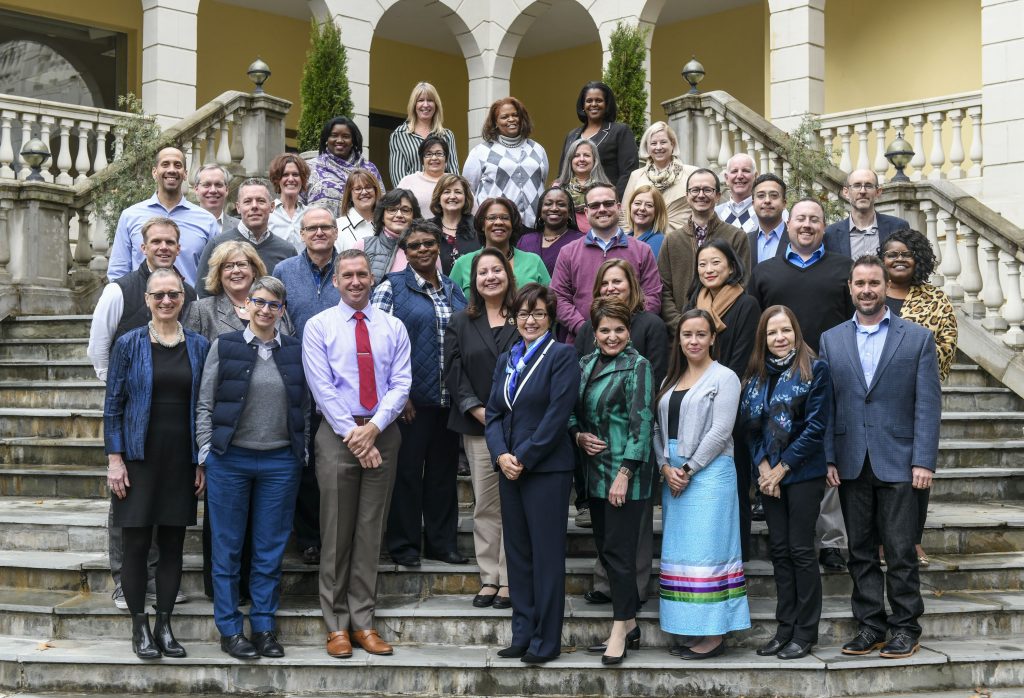
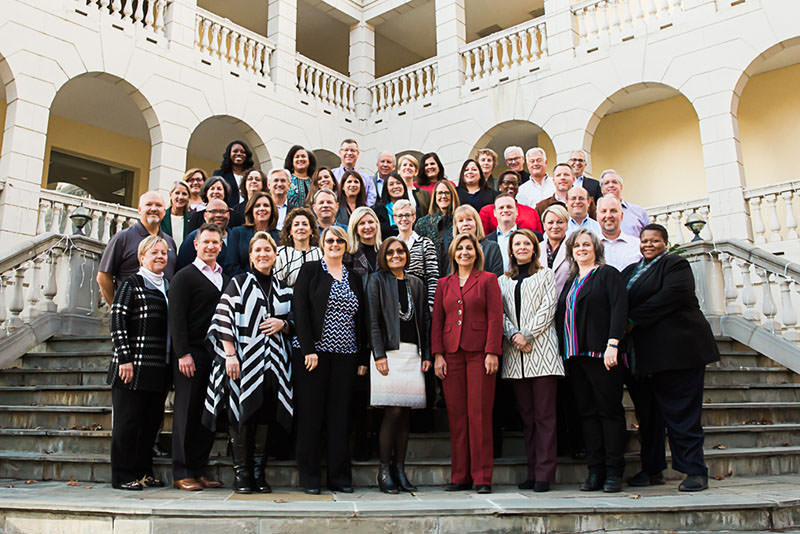
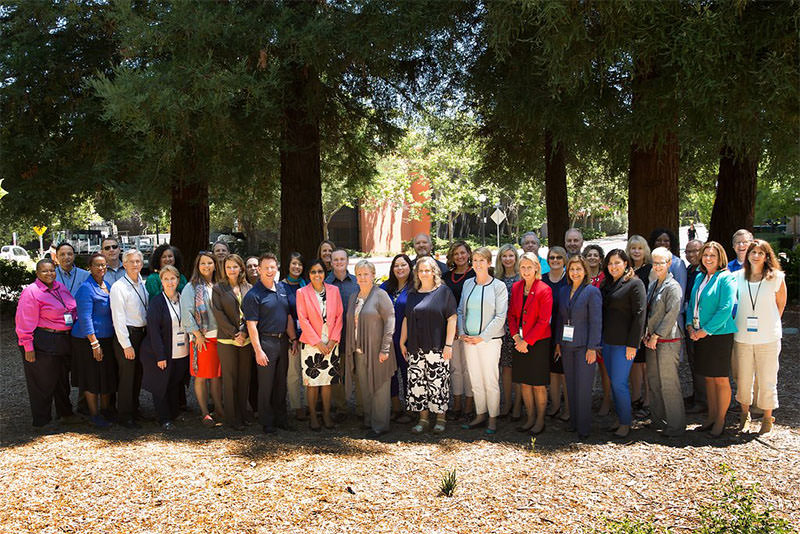
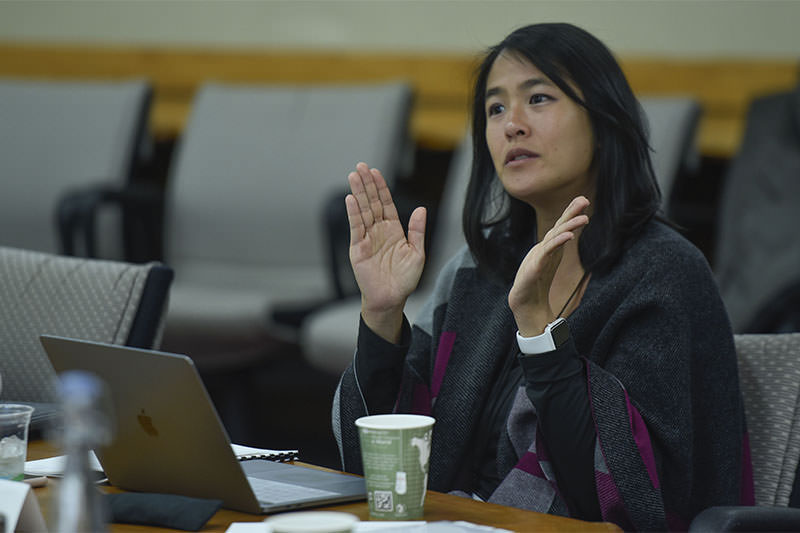
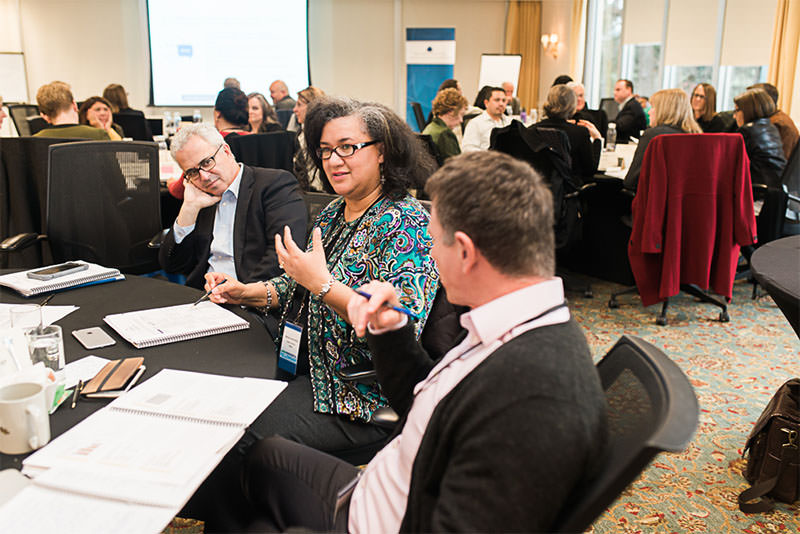
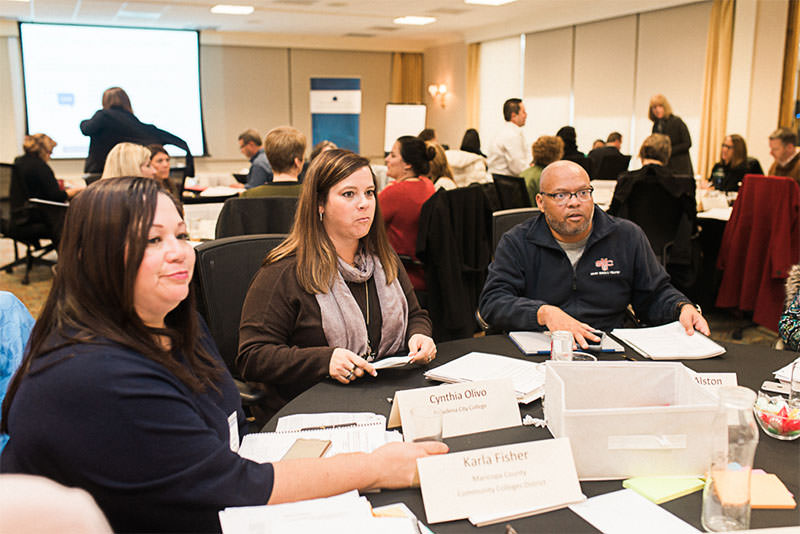
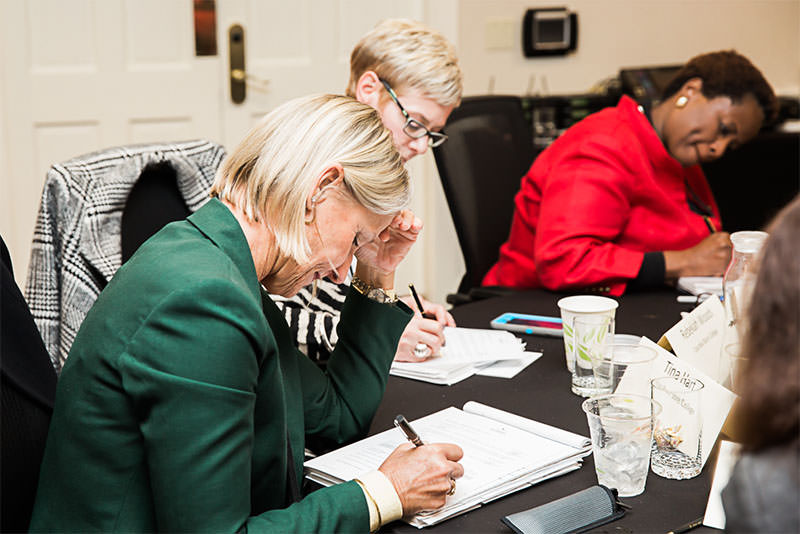
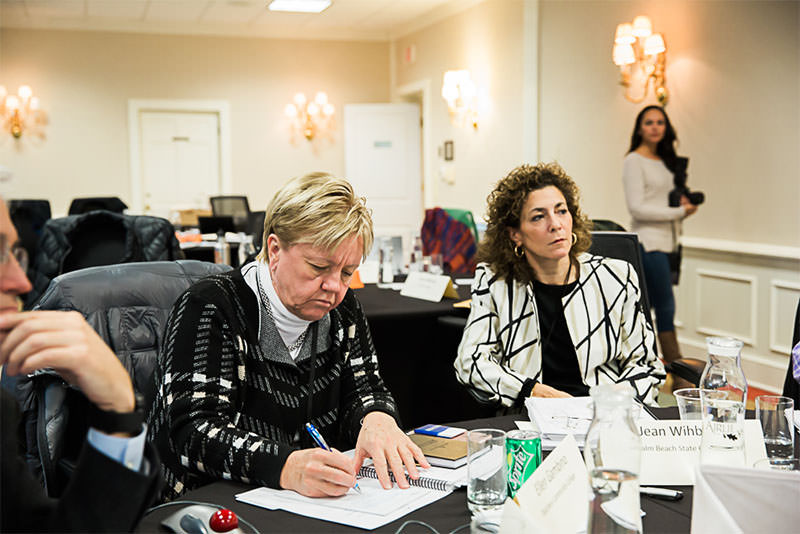
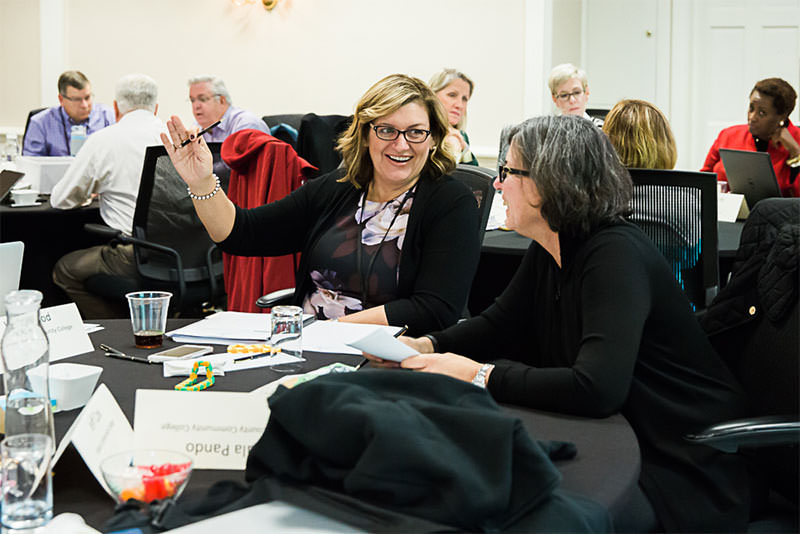
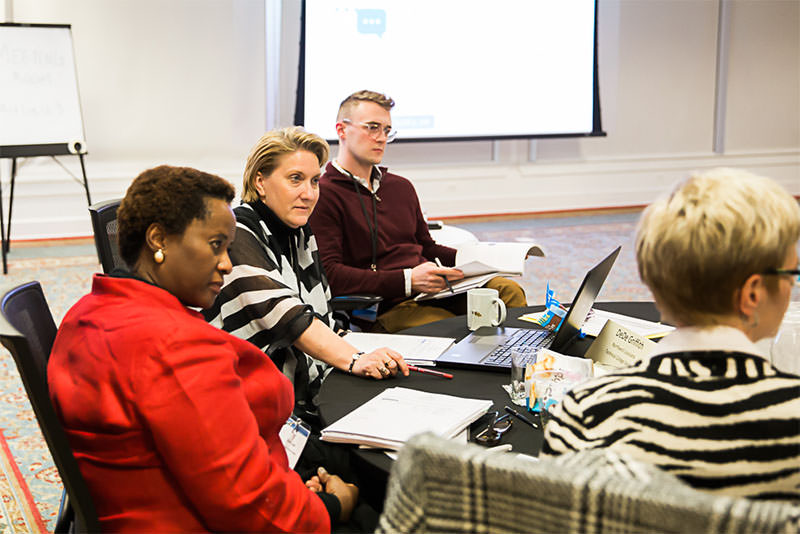
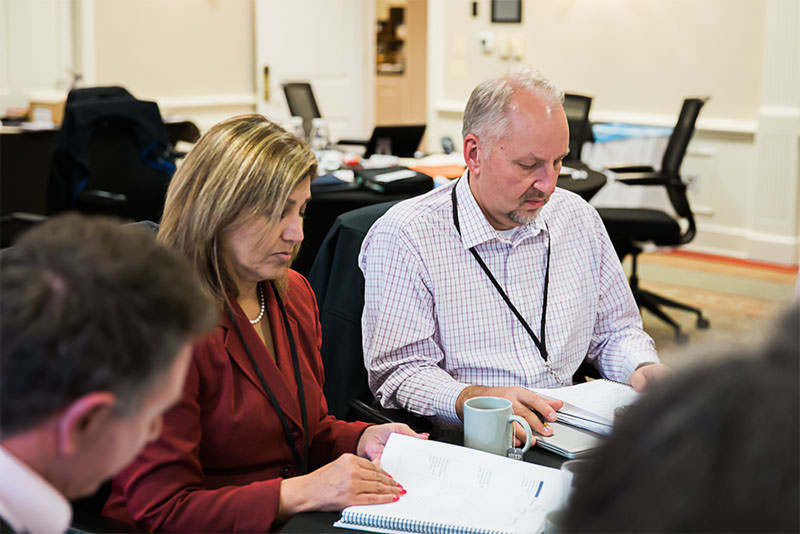
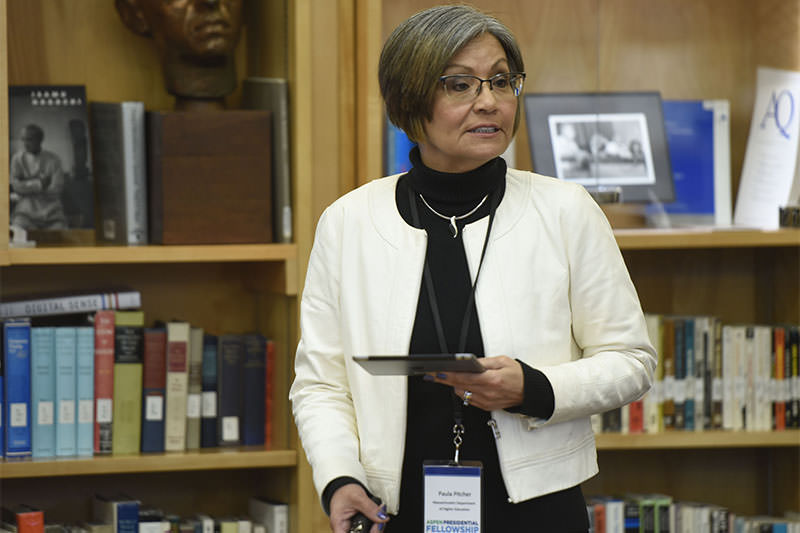
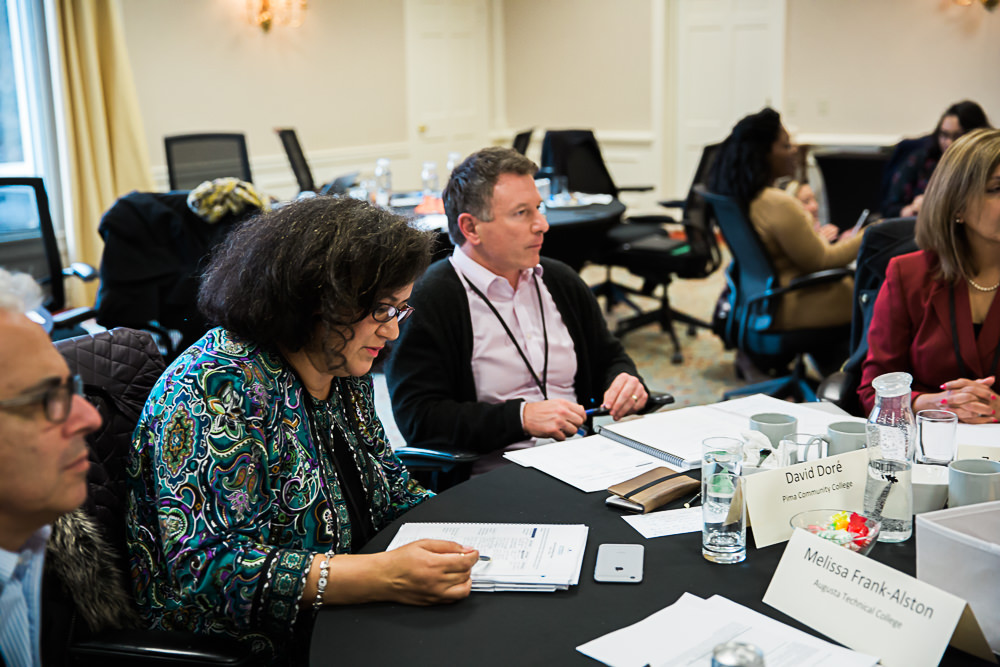
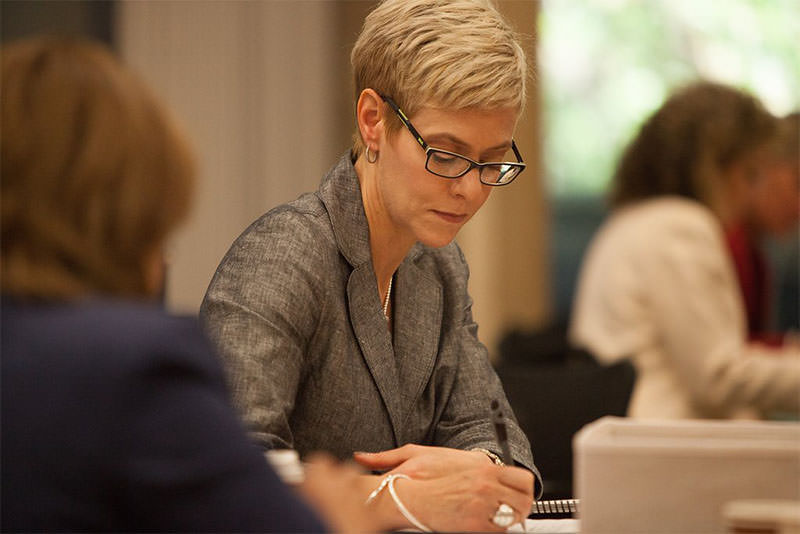
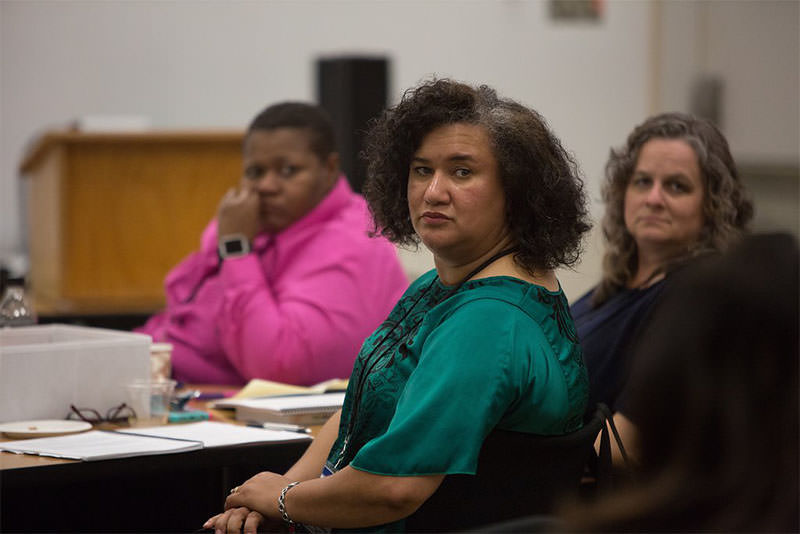
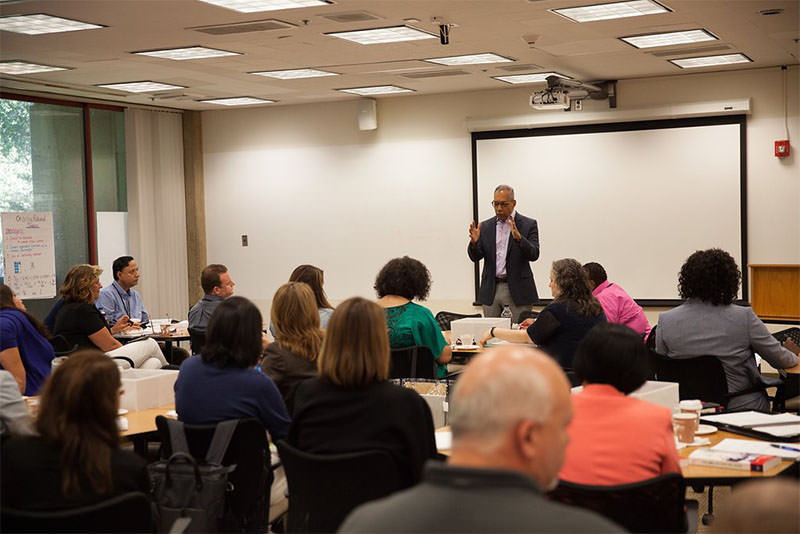
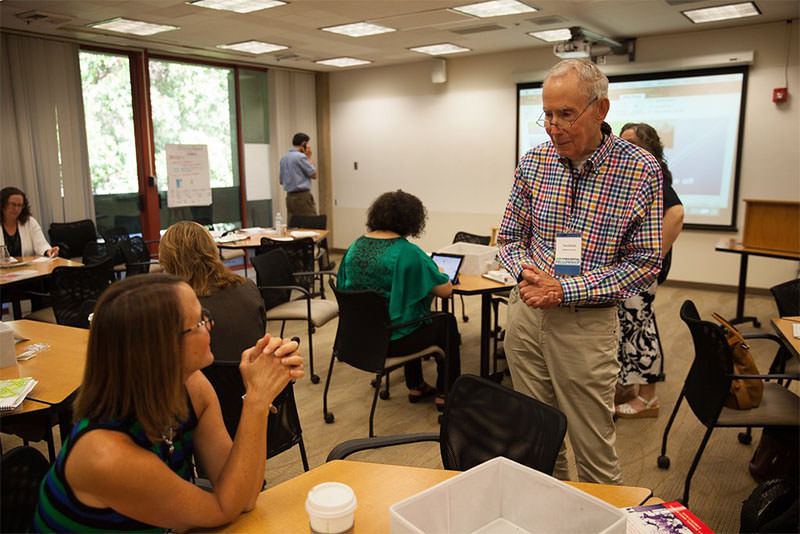
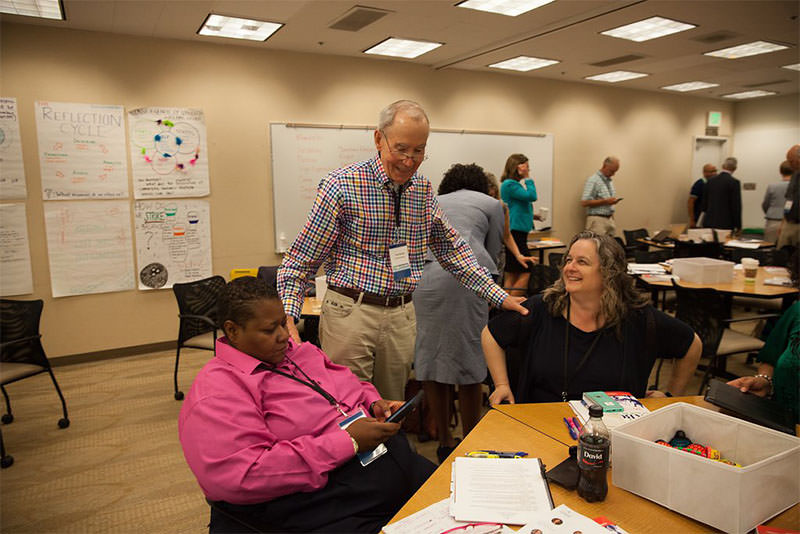
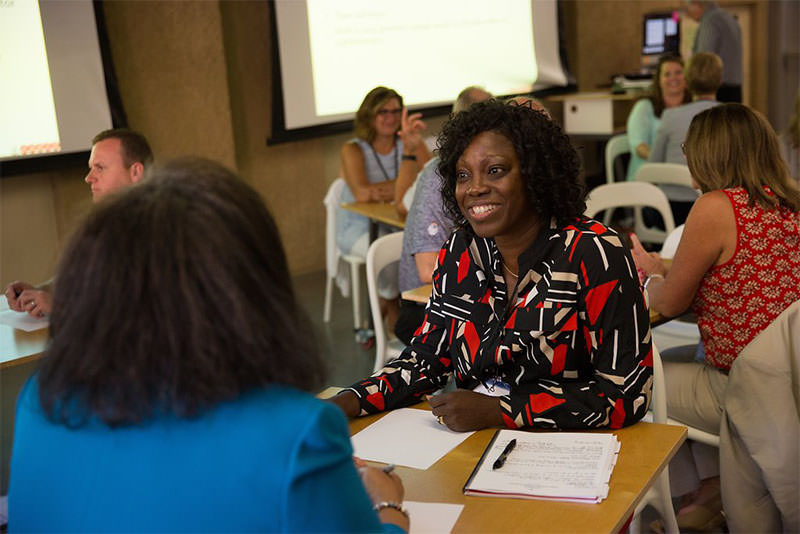
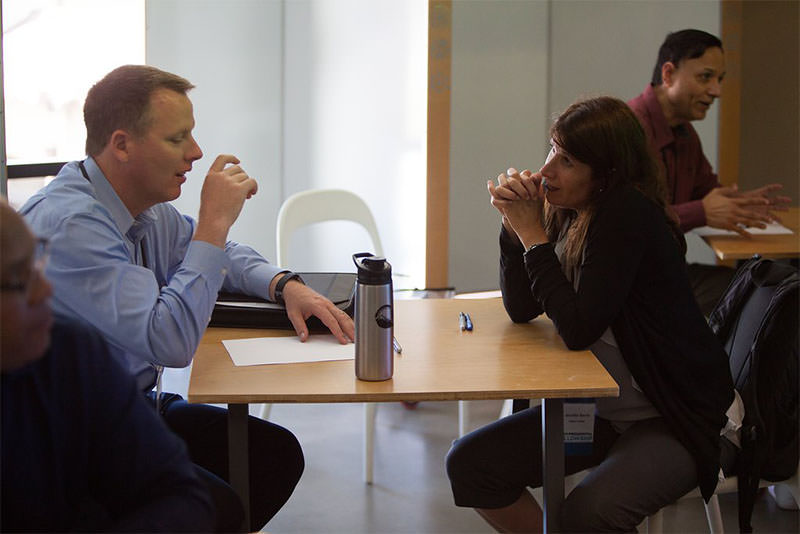
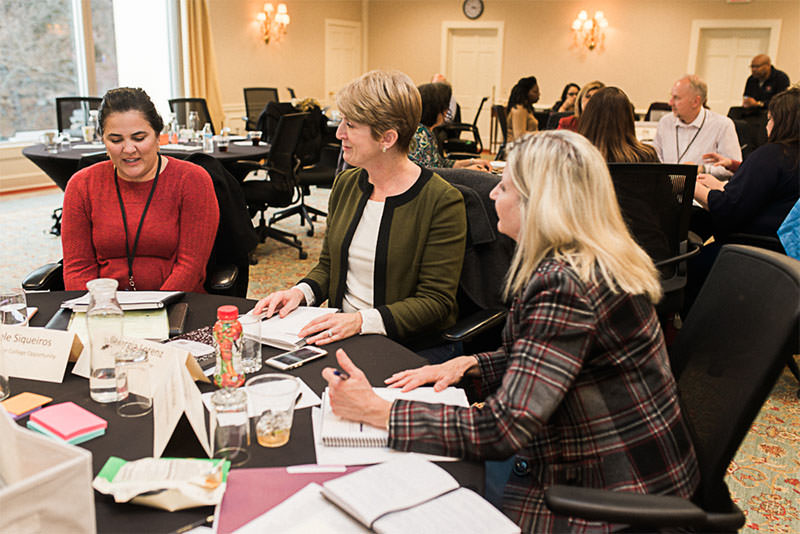
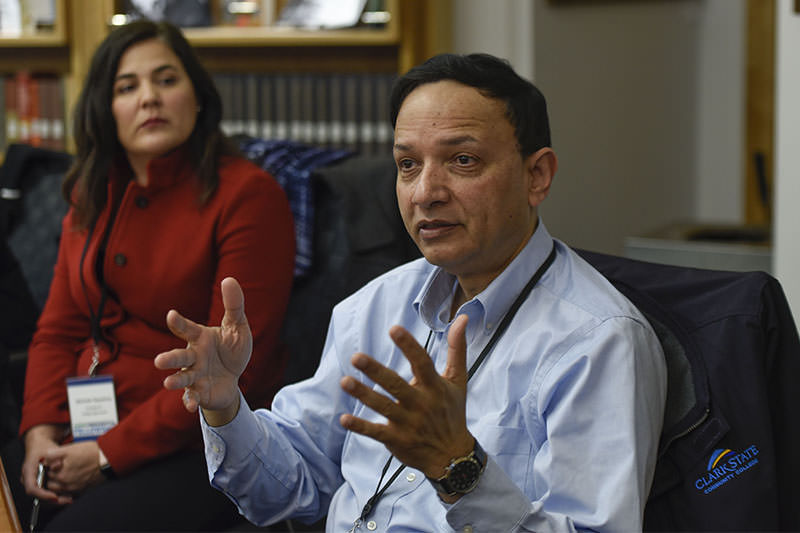
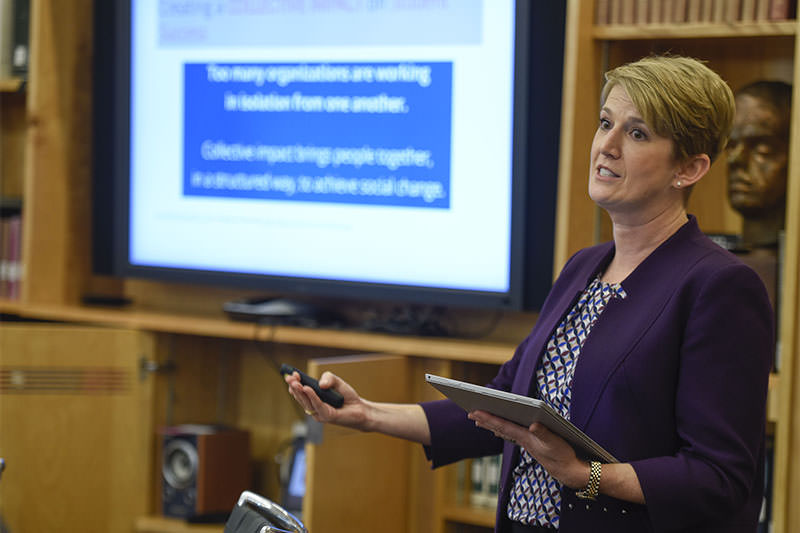
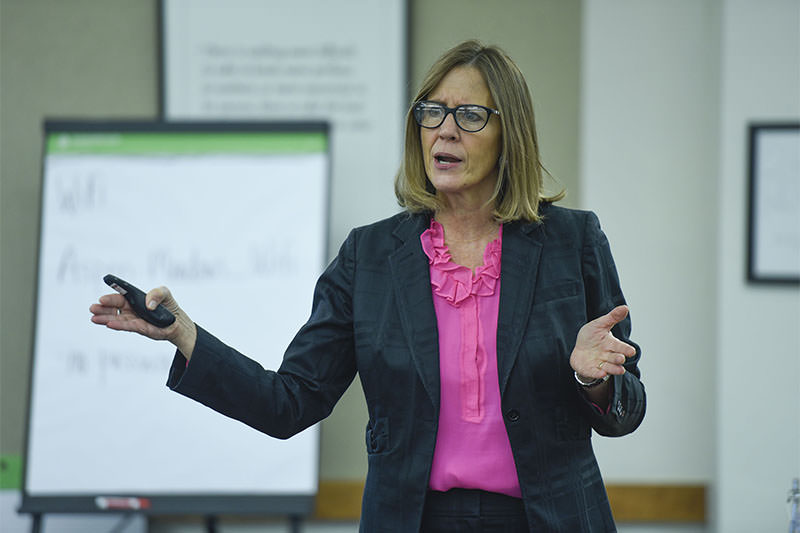
Resources
Atlantic: Colleges are no match for American poverty
Chronicle of Higher Education: What will It take to change the presidency?
Chronicle of Higher Education: What should a college president do in year one?
The Aspen Rising Presidents Fellowship is made possible by generous support from the Burton Family Foundation, the Charles and Lynn Schusterman Family Philanthropies, the College Futures Foundation, the Joyce Foundation, JPMorgan, and the Andrew W. Mellon Foundation.
Contact us for more information.
Alison Quint, Associate Director
